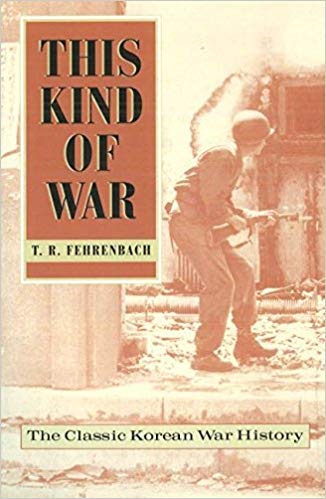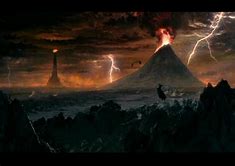If you want to know what happened during the Korean War, this is the book you should read. Yes, yes, there are more recent ones with probably better access to newly declassified records but Fehrenbach’s is more contemporary, written in 1962, when the memories, the nightmares, were fresher. And it is nightmare reading. My God, what the troops, on both sides, went through. What the South Korean people went through. It’s like Mordor.
All because, a mere five years after winning WW2, America was gone.
Oh, not in the sense of the Third Reich or Imperial Japan, ruins and death and wreckage, but spiritually, morally, its national zeitgeist. By the beginning of the 50’s, the no-nonsense, tough, realistic America that rolled up its sleeves, took up arms, and broke the back of fascism was over. Instead, we became an America of hesitation, complication, and overly sophisticated political nuance. No more good and evil, no more right and wrong and simple choices; nuclear weapons had made war unthinkable. Unfortunately for us, not everyone believed that, and we were caught in a trap of our own making. We had the nukes but not the Army, and no one, except the true crazies, were willing to irradiate the world over a border dispute. We were the victims of our own success.
Americans have never trusted nor wanted a standing Army. We don’t like armies. We don’t see them as an instrument of national policy, like the Brits did. We had a small Army that chased Apaches, and we didn’t call up young men and march Over There unless we had to. As we had already done. Twice. That’s it, we’re finished, let the malcontents and misfits chase Apaches, we’ve got a Madison Avenue and Wall Street to build, as was our due for winning the Last Big One. So while Americans became Mad Men, safe behind our nuclear umbrella, the Army was left to rot. Here, kids, use these surplus rifles and tanks for your silly war game playing soldier exercises you like so much. And, you officers and sergeants, stop yelling at the recruits and making them feel bad about themselves. Stop all the tough training, too, because that also hurts their feelings. Be more like civilians, you warmongers.
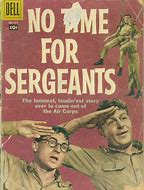
And we did. Sergeants asked pretty please. Barracks weren’t GI’d anymore; sports days replaced marching. And trucks and transports rusted and broke. Oh sure, we had occupation duties, but the Axis was chastened and Japan was outstanding duty with houseboys (and girls) to do your bidding and shine your shoes and, really, why waste taxpayer money on all those annoying and noisy exercises?
And all that time, some rough beast slouched towards Seoul.
Fehrenbach’s description and analysis of the North Korean Army will chill you to the bone. Those guys were good. They were were well organized. They were well equipped. And they had purpose. Yeah, you say, then why’d they lose?
Who said they did?
Because, when all said and done and hundreds of thousands of Koreans were dead and their towns and villages nothing but blackened ruins, the North Koreans were still there. And still are. The US got the crap kicked out of it. There is simply no other way to put it. A peasant Army with no air support and very little armor pushed the greatest fighting force in the world almost into the sea. What prevented that final push is something that Rommel observed: Americans are badly prepared for war, but learn quickly. And it took the destruction of Task Force Smith and tens of thousands of US casualties before we finally learned that the best way to fight, first the North, and then the Chinese, was the same way we fought the Apaches: stay in the field, live out of your saddle, and hit and run. Wear them down. Choke them off. Starve them. But it cost. Oh, did it cost. Our invincibility, and, most importantly, our reputation.
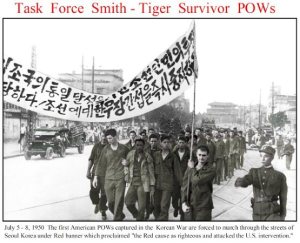
And our confidence. It’s the Forgotten War because we don’t want the reminder that maybe, just maybe, we’re not all that. TVs and refrigerators and little boxes on the hillside and Mom’s new Amana kitchen and all the fifties and sixties good life had a cancer gnawing at its bones. Bustling cities and corporations and experts and Dr. Spock and commissions replaced the common sense and homespun knowledge that defined a pioneering, self-contained, independent person…you know, the average American. This was the atomic age, the modern age, and we have no time for that quaint Pilgrim way of thinking anymore. There’s a world to govern. There’s a New Modern Man to build.
All that time I rode my Spyder bike up and down streets well past dark, running with my friends in an American neighborhood of peace and security and assurance, doors left unlocked, Swanson’s TV dinners and Ed Sullivan and everything good. And a classmate was murdered by his mother, and my family split up, and Presidents and preachers were shot and cities burned and it had to be those dirty Commies, the same ones who crashed through the 38th parallel but no, it wasn’t.
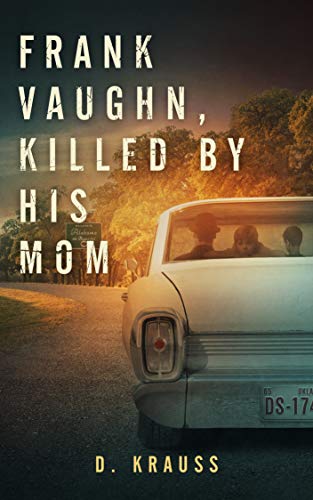
It was us.
I didn’t really know that until recently. I blamed hippies and drugs and Democrats, but all that is mere symptom. Fehrenback spotted it early on. We had forgotten who we are and what we should be and the costs of remaining independent in the face of the envies and the lusts for power and control which are the true motives of mankind. We were Americans. Why, when those Norks find out its Task Force Smith on this ridge waiting for them, they’ll turn tail and run.
When those Cong find out it’s the Seventh Cavalry landing here in the Little Bighorn…er, Ia Drang Valley, why they’ll just turn tail and run.
We learn nothing.
